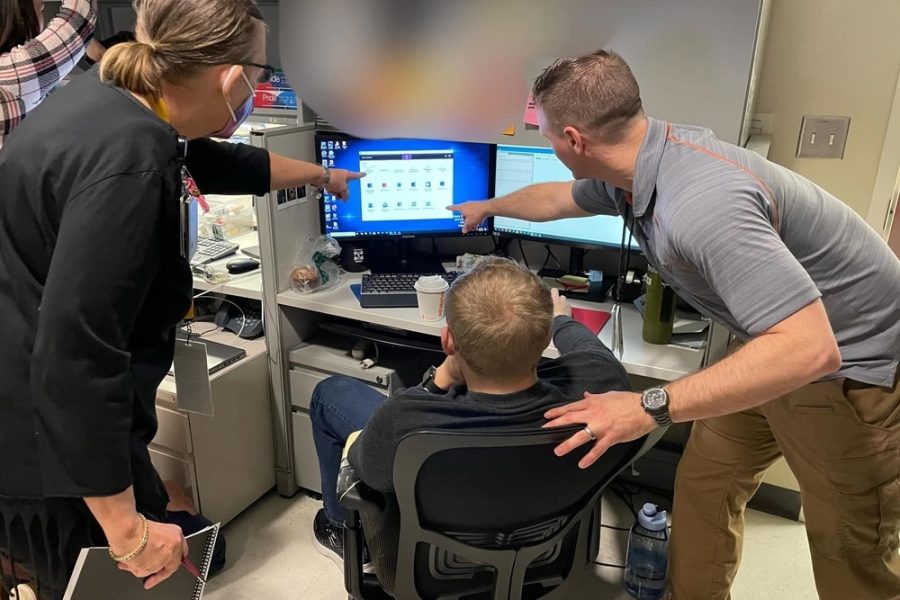A government watchdog urged the Department of Defense to set concrete goals for improving user satisfaction with military health system (MHS) Genesis, the widely-maligned program meant to modernize and streamline the military’s electronic health record (EHR) networks.
Without goals and a plan to achieve them, the Defense Department “will be limited in its ability to objectively measure progress, plan for improvements, and ensure that the system optimally meets the users’ needs,” wrote the Government Accountability Office in a report published April 18.
Indeed, while the 2023 user satisfaction survey shows improvement over past years, it paints a grim picture overall as users still prefer older DOD or private section systems.
Only 39 percent of MHS Genesis users agreed that the system enabled patient-centered care: a four percent improvement over 2022. That lags well behind the 56 percent of users who felt the same way about legacy EHR systems, and the 46 percent of respondents who use the private sector version of MHS Genesis.
Likewise, just 20 percent of MHS Genesis users agreed that the system was efficient, 21 percent said it had a fast response time, and 29 percent said it helped deliver high quality care. By comparison, legacy system users scored 36 percent, 31 percent, and 46 percent in the same categories, while private sector users scored 32 percent, 40 percent, and 50 percent.
The findings confirm a wide-held frustration with MHS Genesis, which has been plagued by glitches since it first rolled out in 2017. These include cybersecurity vulnerabilities, network latency, lengthy issue resolution processes, inadequate staff training, and delayed upgrades, the Congressional Research Service wrote in 2019. About 90 percent of survey respondents found inaccurate or incomplete patient health care information, which delayed access to health care, the Defense Department Inspector General wrote in 2022.
Some also say the system is too aggressive, flagging recruits with minor health conditions and preventing them from joining the service. It also slows down the medical review process: MHS Genesis connects to most civilian health information exchange networks to get a closer look at a recruit’s history, but that history is often incomplete, which draws out the timeline, the Defense Department Inspector General wrote in 2023.
“Prior to MHS Genesis onboarding, it was at least half, if not a third of the time to medically assess someone,” Brig. Gen. Christopher Amrhein, the head of the Air Force Recruiting Service, said in February. “If we can continue to work that piece, I think we can garner a great number of folks to join our Air and Space Forces.”
Lawmakers are worried too: at a hearing in December, Sen. Elizabeth Warren (D-Mass.), chair of the Senate Armed Services subcommittee on personnel, said she was concerned MHS Genesis was delaying the recruiting process and raising issues over applicants with manageable or long-healed injuries. At the hearing, Maj. Gen. William Bowers, head of the Marine Corps Recruiting Command, said the Pentagon had “recently set up a task force to look at the challenges of implementation” that was due to finish in February. A Pentagon spokesperson did not immediately respond when asked for a status update on the task force.
Future Moves
With more than 171,000 users around the world, MHS Genesis is here to stay, which is why the Department of Defense needs goals for improving user experience and a plan to achieve them, GAO argued. Those goals and plans have not yet been established, because the department “focused its priorities on deploying the system to all sites and ensuring patient safety,” officials told the GAO.
The Defense Department partially concurred with GAO’s recommendation to establish MHS Genesis user satisfaction targets and work towards meeting them. After the deployment phase ended earlier this year, “we are transitioning to an optimization phase of the program to enhance the end user experience,” the department wrote.
But one area of MHS Genesis is still so bad that the GAO recommended the Pentagon find an alternative. The dental module, Dentrix, has had problems since it started in 2018, and it still can’t support a growing number of users, GAO found. The program office said the Dentrix vendor had “systemic inability to deliver fundamental capability on schedule and on budget,” but as of November, there were no dates, estimates, or plans for finding an alternative.
“Until the program office identifies an alternative approach to resolving the Dentrix issue, MHS Genesis will not provide critical functionality to dentists who are treating service members and other DOD beneficiaries,” GAO wrote.
The Defense Department partially concurred with GAO’s recommendation, saying it was currently conducting an analysis of alternatives to “explore new solutions.”
